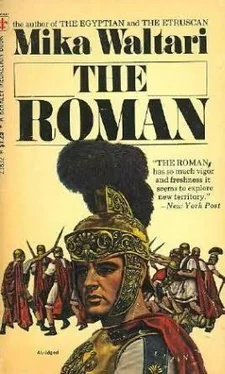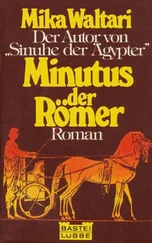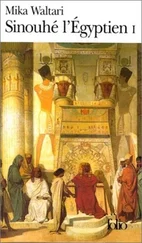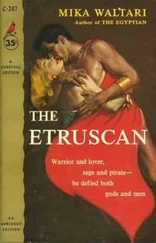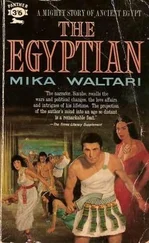Mika Waltari - The Roman
Здесь есть возможность читать онлайн «Mika Waltari - The Roman» весь текст электронной книги совершенно бесплатно (целиком полную версию без сокращений). В некоторых случаях можно слушать аудио, скачать через торрент в формате fb2 и присутствует краткое содержание. Жанр: Исторические приключения, на английском языке. Описание произведения, (предисловие) а так же отзывы посетителей доступны на портале библиотеки ЛибКат.
- Название:The Roman
- Автор:
- Жанр:
- Год:неизвестен
- ISBN:нет данных
- Рейтинг книги:4 / 5. Голосов: 1
-
Избранное:Добавить в избранное
- Отзывы:
-
Ваша оценка:
- 80
- 1
- 2
- 3
- 4
- 5
The Roman: краткое содержание, описание и аннотация
Предлагаем к чтению аннотацию, описание, краткое содержание или предисловие (зависит от того, что написал сам автор книги «The Roman»). Если вы не нашли необходимую информацию о книге — напишите в комментариях, мы постараемся отыскать её.
The Roman — читать онлайн бесплатно полную книгу (весь текст) целиком
Ниже представлен текст книги, разбитый по страницам. Система сохранения места последней прочитанной страницы, позволяет с удобством читать онлайн бесплатно книгу «The Roman», без необходимости каждый раз заново искать на чём Вы остановились. Поставьте закладку, и сможете в любой момент перейти на страницу, на которой закончили чтение.
Интервал:
Закладка:
Mika Waltari
The Roman
The memoirs of Minutus Lausus Manilianus, who has won the Insignia of a Triumph, who has the rank of Consul, who is Chairman of the Priests’ Collegium of the god Vespasian and a member of the Roman Senate.
PART ONE
MINUTUS
Because the Jews at Rome caused disturbances at the instigation of Christus [Claudius] banished them.
Suetonius, The Twelve Caesars, Claudius (25).Although he held power for the same number of years as his stepfather, and for much of that time as a very young man, yet for the first five years he was so great, particularly in his development of the city, that Trajan used often to assert, and rightly, that none of the emperors came anywhere near matching those five years of Nero.
Aurelius Victor, De Caesoribv-s (5).Book I
I was seven years old when the veteran Barbus saved my life. I remember well how I tricked my old nurse Sophronia into letting me go down to the banks of the river Orontes. The rapid swirling current attracted me and I leaned over the jetty to look at the bubbling water. Then Barbus approached me and asked in a friendly way:
“Do you want to learn to swim, boy?”
I replied that I did. He looked around, and grasping me by the back of my neck and the crotch, he flung me far out into the river. Then he let out a wild cry, calling on Hercules and the Roman Jupiter the Conqueror, and flinging his ragged cloak down on the jetty, he plunged into the water after me.
People flocked to his cry. They all saw and unanimously testified to how Barbus, at the risk of his own life, saved me from drowning, carried me ashore, and rolled me on the ground to make me spew up the water I had swallowed. When Sophronia arrived, crying and tearing her hair, Barbus lifted me in his strong arms and carried me all the way home, although I struggled to get away from his filthy clothes and the smell of wine on his breath.
My father was not particularly fond of me, but he plied Barbus with wine and accepted his explanation that I had slipped and fallen into the water, I did not contradict Barbus, for I was used to holding my tongue in my father’s presence. On the contrary, I listened as if spellbound as Barbus modestly related how, during his time as a legionary, he had swum fully equipped across the Danube, the Rhine and even the Euphrates. My father drank wine, too, to calm his fears, and was himself disposed to relate how, as a youth at the school of philosophy in Rhodes, he had wagered that he could swim from Rhodes to the mainland. He and Barbus were in complete agreement that it was high time I learned to swim. My father gave Barbus some new clothes so that when he was dressing, Barbus had an opportunity to exhibit his many scars.
From that time onwards Barbus stayed at our house and called my father master. He escorted me to school, and when he was not too drank, came to fetch me at the end of the school day. First and foremost, he raised me as a Roman, for he really had been born and bred in Rome and had served for thirty years in the I5th legion. My father was careful to confirm this, for although he was an absentminded and reserved man, he was not stupid and would never have employed a deserter in his house.
Thanks to Barbus, I learned not only to swim but also to ride. At his request my father bought me a horse of my own so that I could become a member of the young Equestrian Knights in Antioch as soon as I was fourteen. It was true that Emperor Gaius Caligula had struck my father’s name from the rolls of the Roman Noble Order of Equestrian Knights with his own hand, but in Antioch that was considered more of an honor than a disgrace since everyone remembered only too well what a good-for-nothing Caligula had been, even as a youth. Later lie was murdered at the great circus in Rome as he was about to promote his favorite horse to the rank of Senator.
At the time, my father, albeit reluctantly, had reached such a position in Antioch that they wanted him to go with the delegation the city was sending to Rome to congratulate Emperor Claudius on his accession. His knighthood would undoubtedly have been returned to him there, but my father resolutely refused to go to Rome, and later it was proved that he had had good reasons for this. Now he himself said that he preferred to live in peace and humility and that he had no desire for a knighthood.
Just as Barbus had come to our house by chance, so also had my father’s fortune increased. He used to say in his bitter way that he had had no luck in his life, for when I was born, he lost the only woman he had ever really loved. But even in Damascus he had already made a habit of going to the market on the anniversary of my mother’s death and buying a wretched slave or two. Then when my father had kept the slave for a time and fed him well, he took him to the authorities, paid the redemption fee and gave the slave his freedom. He allowed these freedmen to use the name Marcius, not Manilianus, and gave them money so that they could begin to practice the trade they had learned. One of his freedmen became Marcius the silk merchant, another Marcius the fisherman, while Marcius the barber earned a fortune modernizing women’s wigs. But the one who became the wealthiest of all was Marcius the mine owner, who later made my father buy a copper mine in Sicily. My father also frequently complained that he could never carry out the smallest charitable deed without receiving benefit or praise from it.
Since he had settled in Antioch, after his seven years in Damascus, he had served, good linguist and moderate that he was, as adviser to the Proconsul, especially on matters concerning Jewish affairs, in which he had become thoroughly versed during earlier travels in Judaea and Galilee. He was a mild and good-natured man and always recommended a compromise in preference to forceful measures. In this way he won the appreciation of the citizens of Antioch. After losing his knighthood, he was elected to the city council, not just for his strength of will and energy, but because each party thought he would be useful to them.
When Caligula demantled that an idol of himself should be raised in the temple in Jerusalem and in all the synagogues in the province, my father realized that such an act would lead to armed uprising, and he advised the Jews to try to gain time rather than make unnecessary protests. So it came about that the Jews in Antioch let the Roman Senate think that they themselves wanted to pay for sufficiently worthy statues of the Emperor Gaius in their synagogues. But the statues suffered several misfortunes during their manufacture, or else the premonitory omens were unfavorable and prevented their erection. When Emperor Gaius was murdered, my father won much approval for his foresight. Though I do not believe he could have known anything about the murder beforehand but had merely wished, as usual, to gain time and avoid trouble with the Jews, which would have upset trade in the city.
But my father could also be stubborn. As a member of the city council, he flatly refused to pay for circus shows of wild animals and gladiators and was even against theatrical performances. On the advice of his freedmen, however, he had an arcade bearing his name built in the city. From the shops inside, he received considerable sums in rents so that the enterprise was also to his advantage, quite apart from the honor.
My father’s freedmen could not understand why he dealt with me so severely, wishing me to be content with his own simple way of life. They competed to offer me all the money I might need, gave me beautiful clothes, had my saddle and harness decorated, and did their best to cover up for me, hiding my thoughtless deeds from him. Young and foolish as I was, I was tormented with a desire to be in all things as outstanding, or preferably even more outstanding, than the noble youths of the city, and my father’s freedmen shortsidedly considered that this would be to the advantage of both themselves and my father.
Читать дальшеИнтервал:
Закладка:
Похожие книги на «The Roman»
Представляем Вашему вниманию похожие книги на «The Roman» списком для выбора. Мы отобрали схожую по названию и смыслу литературу в надежде предоставить читателям больше вариантов отыскать новые, интересные, ещё непрочитанные произведения.
Обсуждение, отзывы о книге «The Roman» и просто собственные мнения читателей. Оставьте ваши комментарии, напишите, что Вы думаете о произведении, его смысле или главных героях. Укажите что конкретно понравилось, а что нет, и почему Вы так считаете.
